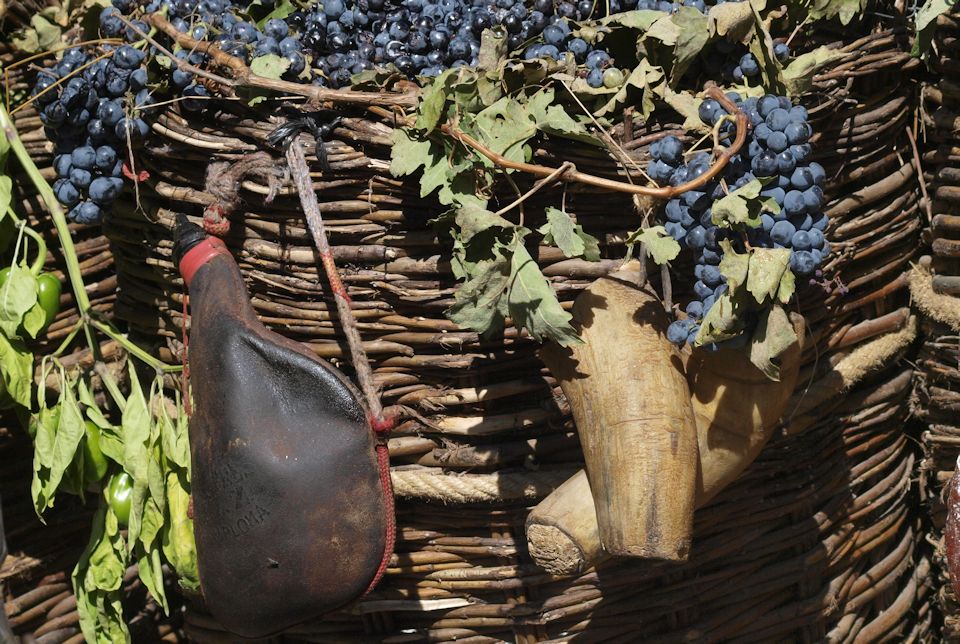The Rev. Dr. Jerome DeVine cautions pastors and laypersons to not put the “new wine” produced during the pandemic back into old wineskins.
JEROME DEVINE
Dean, Michigan Conference Cabinet

It is often true that others will see the depth of our love and faith through how we respond to the challenges in our lives through our shared actions. This past year has given many opportunities for that depth to be revealed.
On behalf of the entire appointive cabinet, and at their urging, I want to extend our deep appreciation for all of the clergy across our Michigan Conference connection for the extravagant efforts you have put forth to lead in the midst of a historic pandemic. From movement into online ministries to trying to offer sound guidance on best safety practices in a pandemic, you have stretched yourselves into new technical and relational skills. We celebrate worship design teams that rose to the adaptive challenges of creating grace-filled worship in a non-touch environment. We rejoice in those missional leaders who adapted their styles so as to meet human needs in new ways. We also extend our gratitude to the many conference staff who quickly collaborated to provide essential resources to local churches desperate in the early transitions caused by the pandemic.
In preparing for this report, I invited the insights and wisdom of my appointive cabinet colleagues. Two of my cabinet colleagues likened this past year to the improvisation of jazz musicians.
Did you feel like this sometimes during the past year? Who knew you would become adept at uploading videos to YouTube, offering engaging worship on Facebook Live, or pre-recording multiple portions that then got woven into a tapestry for use on Zoom. Pastors using their own cell phones to record sermons and others using FM transmitters and preaching from the bed of a pickup truck.
“One of the remarkable things is that we have discovered so many jazz artists among us: those who were willing to step onstage for this wild jam session to mix it up and faithfully create. And, God entered the chaos and brought order and creation into being.”
One of my cabinet colleagues, in reflecting on the image of jazz music, affirmed our clergy and worship leaders, saying, “One of the remarkable things is that we have discovered so many jazz artists among us: those who were willing to step onstage for this wild jam session to mix it up and faithfully create. And, God entered the chaos and brought order and creation into being.”
Just three months into the pandemic, in one of my annual one-to-one supervisory meetings with pastors, one pastor, who is fairly new to ministry, shared that while he knew God did not cause the pandemic, he was very grateful that God used it to force the church into the 21st century.
Change came to every aspect of our normal patterns in our local churches. Not only was worship launched into a new realm, but all of the other routine activities shifted as well. The ministry of food equity and access had to take on new precautions and delivery methods. Faith formation either shriveled up or was pushed into online faith circles, actually making it easier for some people to participate than when it was in person. Lay leadership and pastors discovered that some of the incessant and seemingly endless meetings became less frequent and less necessary. Meetings that used to drone on for two hours now were completed in 45 minutes on Zoom.
In the midst of celebrating innovation, perhaps we also would gain from asking deeper questions about what we really ought to be doing. What might we learn from this season of limitations before we rush backward or forward into a more open season once again?
And no one puts new wine into old wineskins; otherwise, the new wine will burst the skins and will be spilled, and the skins will be destroyed. But new wine must be put into fresh wineskins. And no one after drinking old wine desires new wine, but says, “The old is good.” (Luke 5:37-39)
New technology equipment. New technology skills. New online platforms for presenting content and for holding meetings. New processes for food delivery. New designs for faith development for children, youth, and adults. Many of our local churches, if not most, have been gifted with new wineskins over the past 14 months. Some eagerly welcomed these new wineskins. Some resisted considerably.
Perhaps you are familiar with a parable that Jesus used to help stir a conversation on what old practices have a place in a new reality. You can find the story in Matthew, Mark, and Luke’s gospels. Here is what Luke shares from Jesus:
And no one puts new wine into old wineskins; otherwise, the new wine will burst the skins and will be spilled, and the skins will be destroyed. But new wine must be put into fresh wineskins. (Luke 5:37-38)
That is the verse that all three of those gospels share. But Luke adds one additional verse that I want us to play with for a short while:
And no one after drinking old wine desires new wine, but says, “The old is good.” (Luke 5:39)
Do you catch the irony of that last verse? No doubt, many of us preachers in the conference have waxed eloquently about the need to offer new wine to reach those who have been either disconnected or never connected to a community of grace and belonging centered around the radical love of God revealed and embodied in the one we know as Jesus the Christ. Gifted and dedicated lay people have sought to offer or infuse new ideas that would build bridges and partnerships in the wider communities.
In the past, we often wrestled with discovering new wineskins to offer this new wine. At the present moment, we may find ourselves reversing the image of the biblical metaphor. Remember, Luke has Jesus ending that parable noting that “no one after drinking the old wine desires new wine.” Yes, we have been gifted with new wineskins, yet a key danger is that we are filling them with old wine.
“In the end, even those churches who have improvised, adapted, and played on through the changes may embrace a return to a familiar, old refrain rather than choosing to sing a new song unto the Lord. If that happens, we’ve missed a tremendous opportunity.”
As I intimated earlier in my report, I have incorporated thoughts and reflections from my cabinet colleagues. We work as a collaborative circle, seeking wisdom and strength from one another in this work. I am simply the talking head for the report this year. There is a deep yearning within each of us and in us collectively that our churches not return to normal. Instead, we yearn to see our churches live into and claim a new kind of future. I want to share the reflection from one of my colleagues that stirred me to consider Jesus’ metaphor of pouring new wine into new wineskins:
“The push to return to normal is an overriding concern in most of my congregations. Even those who have been intentional in their desire to “do no harm” long to get back to in-person worship. In many churches, sides have entrenched in opposition as they have made decisions about how and when to go back to in-person worship without consideration about why we worship entering the discussion. The driver in these places is to end up in the same place as they started so they can return to the same practices and programs that weren’t working even before the advent of Covid-19. In the end, even those churches who have improvised, adapted, and played on through the changes may embrace a return to a familiar, old refrain rather than choosing to sing a new song unto the Lord. If that happens, we’ve missed a tremendous opportunity.”
I will say, again, that we are deeply appreciative of the extravagant leadership efforts that clergy and key lay people have poured out over the past year. We praise God for those places and situations where there truly have been transformational new approaches to reaching new people to connect them to Christ and community. The moment is here for us to choose to be the Church and churches of God’s design and not of our own familiarity and comfort. As another of my colleagues poignantly put it: “What we do with the circumstances of today has a lot to do with how we come out from this place to a new tomorrow. Congregations and clergy leaders who face the truth of their circumstances and courageously engage by faith will be the ones found fruitful and healthy and ready when circumstances change.”
May it be so. Amen.
Last Updated on September 20, 2022

